
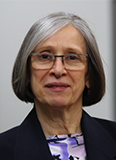
Ljiljana Trajkovic, Professor, IEEE Life Fellow, Simon Fraser University, Canada
Dr. Trajkovic served as IEEE Division X Delegate/Director (2019–2020) and IEEE Division X Delegate-Elect/Director- Elect (2018). She served as Senior Past President (2018–2019), Junior Past President (2016–2017), President (2014–2015), President-Elect (2013), Vice President Publications (2012–2013, 2010–2011), Vice President Long-Range Planning and Finance (2008–2009), and a Member at Large of the Board of Governors (2004–2006) of the IEEE Systems, Man, and Cybernetics Society. She served as 2007 President of the IEEE Circuits and Systems Society and a member of its Board of Governors (2004–2005, 2001–2003). She served as Chair of the IEEE Circuits and Systems Society joint Chapter of the Vancouver/Victoria Sections (2001–2021).
She was Chair of the IEEE Technical Committee on Nonlinear Circuits and Systems (1998). She was General Co-Chair of SMC 2020 and General Co-Chair of SMC 2020, SMC 2019, and SMC 2018 Workshops on BMI Systems, SMC 2016, and HPSR 2014, Special Sessions Co-Chair of SMC 2017, Technical Program Chair of SMC 2017 and SMC 2016 Workshops on BMI Systems, Technical Program Co-Chair of ISCAS 2005, and Technical Program Chair and Vice General Co-Chair of ISCAS 2004. She serves as Editor-in-Chief of the IEEE Transactions on Human-Machine Systems (2021–2023) and served as an Associate Editor of the IEEE Transactions on Circuits and Systems (Part I) (2004–2005, 1993–1995), the IEEE Transactions on Circuits and Systems (Part II) (2018, 2002–2003, 1999–2001), and the IEEE Circuits and Systems Magazine (2001–2003). She is a Distinguished Lecturer of the IEEE Systems, Man, and Cybernetics Society (2020–2021) and the IEEE Circuits and Systems Society (2020–2021, 2010–2011, 2002–2003). She is a Professional Member of IEEE-HKN and a Life Fellow of the IEEE.
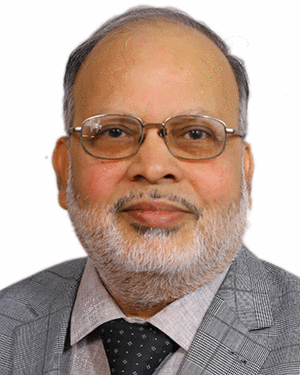
Bijnan Bandyopadhyay, Professor, IEEE Fellow, Indian Institute of Technology, India
Bijnan Bandyopadhyay (Fellow, IEEE/the Indian National Academy of Engineering/National Academy of Sciences, India/the Indian Academy of Sciences) received the Ph.D. degree in electrical engineering from the Indian Institute of Technology (IIT) Delhi, New Delhi, India, in 1986. In 1987, he joined the Systems and Control Engineering Group, IIT Bombay, Mumbai, India, as a Faculty Member, and is currently a Professor. In 1996, he was with the Lehrstuhl fur Eleck-trische Steuerung und Regelung, RUB, Bochum, Germany, as an Alexander von Humboldt Fellow. He has 400 publications that include monographs, book chapters, journal articles, and conference papers. He has guided 38 Ph.D. dissertations at IIT Bombay. His research interests include the areas of multirate output feedback based discrete-time sliding mode control, event-triggered sliding mode control, and nuclear reactor control.,Prof. Bandyopadhyay served as the Co-Chairman of the International Organization Committee and as the Chairman of the Local Arrangements Committee for the IEEE ICIT, Goa, India, in 2000. He also served as one of the General Chairs of the IEEE ICIT Conference, Mumbai, India, in 2006. He has served as the General Chair for the IEEE International Workshop on VSSSMC, Mumbai, India, 2012. He has also served as an Associate Editor for the IEEE Transactions on Industrial Electronics and IEEE/ASME Transactions on Mechatronics. He is currently serving as an Associate Editor for the IET Control Theory & Applications. He was awarded the IEEE Distinguished Lecturer of IEEE IE Society in 2019. He was awarded Distinguished Visiting Fellow by the Royal Academy of Engineering, London, U.K., in 2009 and 2012.
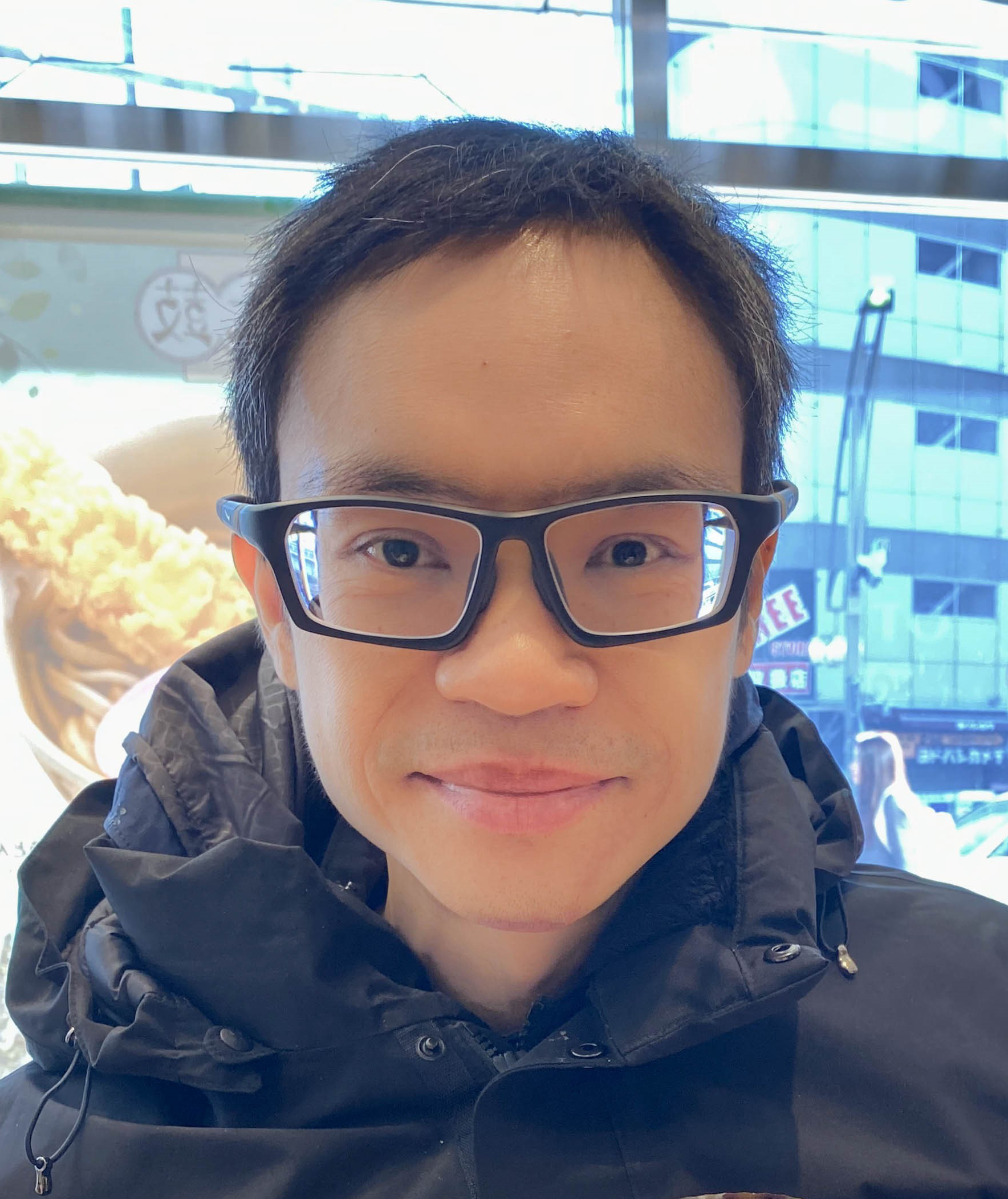
Dusit Niyato, Professor, IEEE Fellow, IET Fellow, School of Computer Science and Engineering (SCSE), Nanyang Technological University, Singapore
Dusit Niyato is currently a professor in the School of Computer Science and Engineering and, by courtesy, School of Physical & Mathematical Sciences, at the Nanyang Technological University, Singapore. He received B.E. from King Mongkuk’s Institute of Technology Ladkrabang (KMITL), Thailand in 1999 and Ph.D. in Electrical and Computer Engineering from the University of Manitoba, Canada in 2008. He has published more than 380 technical papers in the area of wireless and mobile networking, and is an inventor of four US and German patents. He has authored four books including "Game Theory in Wireless and Communication Networks: Theory, Models, and Applications" with Cambridge University Press. He won the Best Young Researcher Award of IEEE Communications Society (ComSoc) Asia Pacific (AP) and The 2011 IEEE Communications Society Fred W. Ellersick Prize Paper Award. Currently, he is serving as a senior editor of IEEE Wireless Communications Letter, an area editor of IEEE Transactions on Wireless Communications (Radio Management and Multiple Access), an area editor of IEEE Communications Surveys and Tutorials (Network and Service Management and Green Communication), an editor of IEEE Transactions on Communications, an associate editor of IEEE Transactions on Mobile Computing, IEEE Transactions on Vehicular Technology, and IEEE Transactions on Cognitive Communications and Networking. He was a guest editor of IEEE Journal on Selected Areas on Communications. He was a Distinguished Lecturer of the IEEE Communications Society for 2016-2017. He was named the 2017, 2018 highly cited researcher in computer science. He is a Fellow of IEEE.
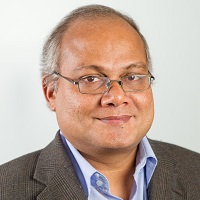
Arumugam Nallanathan, Professor, IEEE Fellow, Queen Mary University of London, UK
Biography: Arumugam Nallanathan (Fellow, IEEE) was an Assistant Professor with the Department of Electrical and Computer Engineering, National University of Singapore, from August 2000 to December 2007. He was with the Department of Informatics, King’s College London, from December 2007 to August 2017, where he was a Professor of wireless communications from April 2013 to August 2017 and has been a Visiting Professor since September 2017. He has been a Professor of wireless communications and the Head of the Communication Systems Research (CSR) Group, School of Electronic Engineering and Computer Science, Queen Mary University of London, since September 2017. He has published nearly 500 technical papers in scientific journals and international conferences. His research interests include artificial intelligence for wireless systems, beyond 5G wireless networks, the Internet of Things (IoT), and molecular communications.,Mr. Nallanathan was a co-recipient of the Best Paper Awards presented at the IEEE International Conference on Communications 2016 (ICC’2016), the IEEE Global Communications Conference 2017 (GLOBECOM’2017), and the IEEE Vehicular Technology Conference 2018 (VTC’2018). He is an IEEE Distinguished Lecturer. He received the IEEE Communications Society SPCE Outstanding Service Award in 2012 and the IEEE Communications Society RCC Outstanding Service Award in 2014. He served as the Chair for the Signal Processing and Communication Electronics Technical Committee of IEEE Communications Society and the Technical Program Chair and a member of technical program committees in numerous IEEE conferences. He is the Editor-at-Large of IEEE Transactions on Communications and a Senior Editor of IEEE Wireless Communications Letters. He was an Editor of IEEE Transactions on Wireless Communications from 2006 to 2011, IEEE Transactions on Vehicular Technology from 2006 to 2017, and IEEE Signal Processing Letters. He has been selected as a Web of Science Highly Cited Researcher in 2016 and an AI 2000 Internet of Things Most Influential Scholar in 2020.
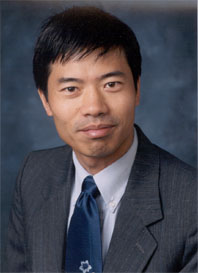
Mengchu Zhou,Professor, IEEE Fellow, New Jersey Institute of Technology, USA
Biography: Prof. MengChu Zhou, received a bachelor's degree from Nanjing University of Science and Technology in 1983; received a master's degree from the Department of Automatic Control of Beijing Institute of Technology in 1986, and joined the Computer Application Research Institute of the Ministry of Ordnance Industry in the same year; Ph.D. from the Institute of Technology. From 1987 to 1990, he served as an assistant researcher at the CIM Manufacturing Center of Rensselaer Polytechnic Institute and the New York State Productivity and Technology Transfer Center. Since 1990, he has served as assistant professor, associate professor, full professor and distinguished professor at the New Jersey Institute of Technology in the United States. He was awarded tenure in 1995. Founded and hosted the Discrete Event Systems Laboratory.
From 1987 to 1990, Dr. Zhou served many famous professors (including his doctoral supervisor F. DiCesare, vice president of IEEE System Man and Cybernetics Society, A. Sanderson, chairman of IEEE Robotics and Automation Society, director of Electrical and Computer Engineering Department and IEEE Under the guidance of A. Desrochers, Editor of Robotics and Automation Magazine, he is engaged in the research of computer integrated manufacturing systems, and applies the research results to the manufacturing systems of famous companies such as General Motors, IBM, Johnson & Johnson, etc., which contributes to the concept and method of CIMS in today's Contributed to popularization and application.
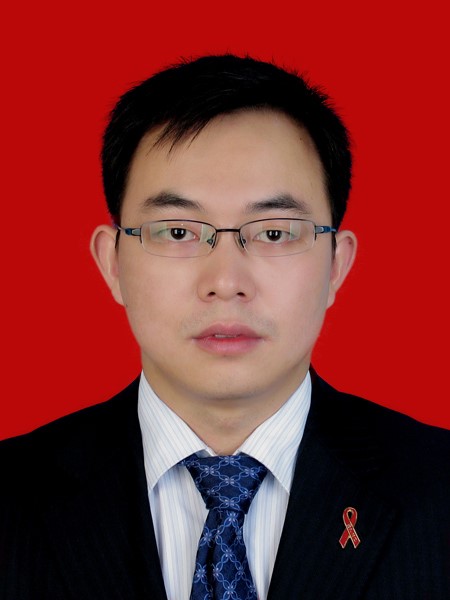
Xun Gong, Professor, School of Materials Science and Engineering, Shenyang Ligong University, China
Speech Title: Focus on Digital Construction of Smart Cities from COVID-19 Epidemic Prevention and Control
Abstract: In recent years, COVID-19 epidemic prevention and control, the construction of smart city has played a positive role. Many places have built an all-around and three-dimensional epidemic prevention and control system through grid management precision control, big data analysis precision judgment, mobile terminal connectivity, and city brain comprehensive command, which has significantly improved the agility and accuracy of responding to the epidemic. Many applications of new-generation information technologies, such as big data, artificial intelligence, cloud computing, blockchain and 5G, have provided efficient services for fighting the epidemic.

Ran Tao, Professor, College of Water Resources and Civil Engineering, China Agricultural University, China
Speech Title: Mode Decomposition Based Researches in Hydraulic Machinery Flow Cases
Abstract: Hydraulic machinery is widely used in industrial and agricultural fields for the delivery of water and other liquid mediums. It is usually filled with fully developed turbulence, and its characteristics are difficult to predict. The analysis of internal flow in hydraulic machinery is conducive to solving the problem of unstable operation caused by turbulence. Computational fluid dynamics (CFD) based mode decomposition of flow field has become popular in recent years. It can greatly reduce the complexity of the flow field, so that each mode represents the specific energy information or frequency information of the flow field. After the low energy mode is removed, the data volume of the high energy mode is greatly reduced. This method is also conducive to effectively summarizing the universal laws of similar flows. After the flow mode is split, machine learning can be used to replace CFD. This application can greatly reduce the prediction time and provide a new solution for future flow analysis. It is also helpful for us to have a better understanding of water flow and other liquid flow in engineering cases.
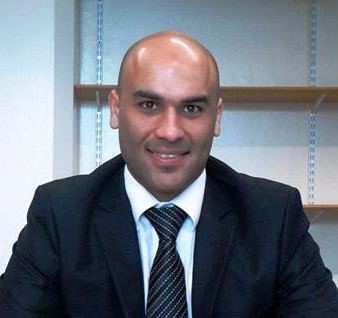
Muhyiddine Jradi, A.Professor, University of Southern Denmark, Denmark
Biography: Muhyiddine Jradi, PhD, is an Associate Professor in Energy Engineering and the leader of the Building Energy Modelling and Simulation Group at the Center of Energy Informatics at the University of Southern Denmark. He has a mechanical engineering background and received his PhD degree in Sustainable Building and Energy Technologies from the University of Nottingham, in 2014. Dr Jradi’s main research interests include energy efficient systems, building energy modelling and simulation, energy renovation, multi-generation systems, energy systems numerical modelling and simulation, renewable energy and energy storage. Dr Jradi is currently leading and taking part in multiple international research projects in collaboration with industrial partners and public parities with funding exceeding 6 million USD. In addition, he is serving as a member of multiple journal editorial boards and international conferences’ scientific committees. He has received multiple awards including the Dean of Engineering Research Scholarship for International Excellence from the University of Nottingham and the Sakkal Renewable Energy Award from the American University of Beirut. Dr Jradi research work has led to more than 150 academic publications in leading journals and international conferences.
Speech Title: Towards Smart and Energy Efficient Buildings and Communities
Abstract: Buildings and building blocks are considered key components in most of the national and international legislation and initiatives aiming to reduce energy consumption and the corresponding emissions and achieve energy and environmental goals. However, most of the efforts and investigations reported in recent years have concentrated on the energy-efficient design and performance improvement of single buildings or limited clusters of buildings. Considering the transition towards interconnected cities and communities and the widespread evolution of smart and flexible thermal and electrical grids and microgrids, there is an urgent need to scale up the effort from energy efficient single buildings and clusters to interconnected, energy-efficient, and flexible cities and neighborhoods. In this talk, recent advancements in the field of building energy performance optimization and improvement using dynamic energy modeling will be presented. In addition, a holistic approach to upscaling the effort and improving the energy design of smart communities and districts will be highlighted. In this regard, a case study of an actual district in Denmark will be demonstrated.